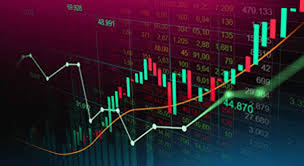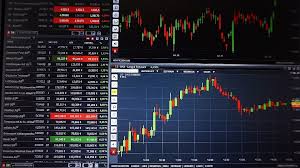Beginner Forex Trading A Comprehensive Guide 1672909969

Beginner Forex Trading: A Comprehensive Guide
Forex trading is an exciting venture that can provide individuals with opportunities to generate income. However, it can also be daunting, especially for those who are just starting. This article aims to demystify the world of forex trading for beginners. We will cover the basics, essential strategies, and key considerations. If you’re interested in finding reliable brokers to facilitate your trades, consider exploring beginner forex trading Trading Brokers in Vietnam.
Understanding Forex Trading
Forex, short for foreign exchange, is the market where currencies are traded. With a daily trading volume exceeding $6 trillion, it is the largest and most liquid market in the world. Unlike the stock market, which is limited to trading companies’ stocks, the forex market operates 24 hours a day, five days a week, allowing for trading at any hour.
Basic Terminology in Forex
Before diving into trading, it is essential to understand some basic terminology:
- Currency Pair: Currencies are traded in pairs, such as EUR/USD or GBP/JPY, where the first currency is the base currency and the second is the quote currency.
- Pips: A pip is the smallest price change in a currency pair. For most pairs, it is 0.0001.
- Leverage: Leverage allows traders to control larger positions with a smaller amount of capital. It can amplify profits but also increases risk.
- Spread: The difference between the bid (selling) price and the ask (buying) price of a currency pair.
Opening a Forex Trading Account
To begin trading, the first step is to open a forex trading account. Here are the primary steps to follow:
- Choose a Forex Broker: Research and select a reliable broker that offers a user-friendly trading platform, competitive spreads, and good customer support.
- Complete Registration: Fill out the required information and submit any necessary documents for verification.
- Deposit Funds: Fund your trading account using a method that suits you, such as credit card, bank transfer, or e-wallet.
- Start Trading: Once your account is funded, you can begin trading with real money.

Developing a Trading Strategy
A solid trading strategy is critical for success in forex trading. Here are several key strategies that beginners can consider:
1. Technical Analysis
This strategy involves analyzing price charts and using indicators to predict future price movements. Common indicators include moving averages, RSI (Relative Strength Index), and MACD (Moving Average Convergence Divergence).
2. Fundamental Analysis
Fundamentally, this strategy focuses on economic indicators, interest rates, and political events that can affect currency values. Being aware of economic news releases can help traders make informed decisions.
3. Scalping
Scalping involves making numerous trades throughout the day to capture small price movements. This strategy demands quick decision-making and precise execution.
4. Swing Trading
This strategy involves holding trades for several days to take advantage of expected price swings. Swing traders typically rely on technical analysis for entry and exit points.

Managing Risk in Forex Trading
Effective risk management is crucial for longevity in trading. Here are several techniques:
- Use Stop-Loss Orders: These orders trigger automatic selling of a currency pair when it reaches a certain price, allowing traders to limit potential losses.
- Risk Only What You Can Afford to Lose: Do not invest money you cannot afford to lose. Consider starting with a demo account to practice trading strategies without financial risk.
- Diversify Your Trades: Avoid putting all your capital into one trade. Diversifying can minimize risk across your portfolio.
Choosing the Right Forex Broker
Selecting a broker is one of the most important decisions for any forex trader. Consider the following factors:
- Regulation: Ensure the broker is regulated by a reputable authority to protect your funds and provide a fair trading environment.
- Trading Platform: A user-friendly platform can enhance your trading experience. Look for features such as analysis tools, mobile access, and an intuitive interface.
- Customer Support: Efficient customer support can resolve issues quickly. Test their response time and availability.
- Fees and Spreads: Compare different brokers to find one that offers competitive spreads and low trading fees.
Staying Educated and Informed
The forex market is constantly evolving, and staying informed about market trends and economic news is vital. Here are some resources for continuous learning:
- Online Courses: Many platforms offer courses focusing on forex trading, which can help you understand advanced concepts.
- Trading Forums: Engaging in trading communities can provide insights and peer support.
- Books and Blogs: There are numerous books and blogs dedicated to forex trading strategies and tips that can enhance your knowledge.
Final Thoughts
Forex trading presents exciting opportunities for beginners, but it also comes with risks. By understanding the basics, developing a solid trading strategy, managing risks effectively, and choosing the right broker, newcomers can embark on their forex journey with greater confidence. Remember, continuous education and practice are key to becoming a successful trader.


ใส่ความเห็น